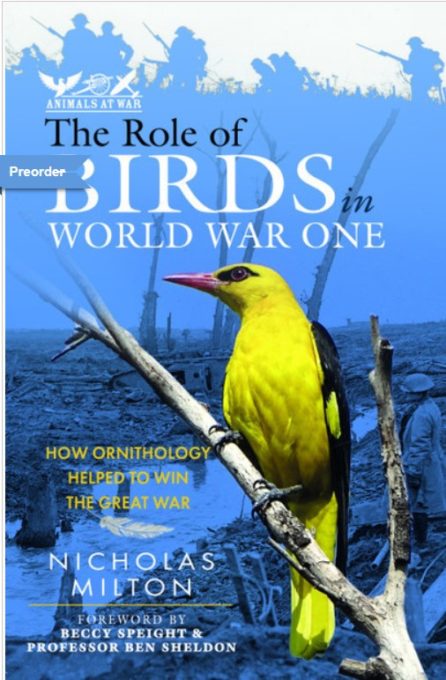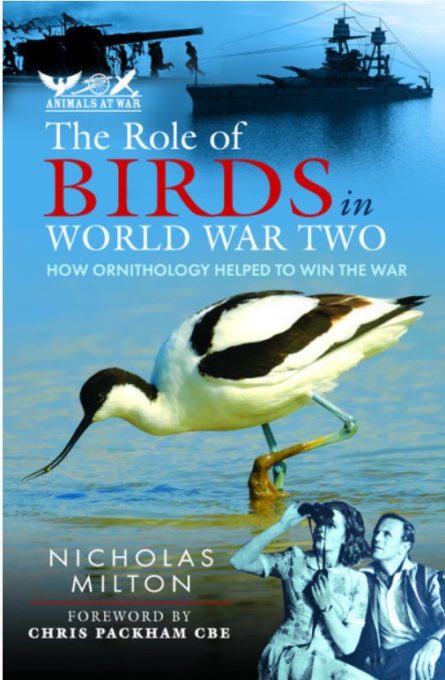You may see them huddled together at family history society meetings, comparing notes on their latest finds.
It could be about the cousins they have in common, or to do with another interest they share.
It’s a passion for some who will be particularly interested in two books by Nicholas Milton, published by Pen and Sword this year because they also relate to the military.
 The most recent, published 30 September, is The Role of Birds in World War One: How Ornithology Helped to Win the Great War.
The most recent, published 30 September, is The Role of Birds in World War One: How Ornithology Helped to Win the Great War.
The British Expeditionary Force sent to France in the late summer of 1914 has been referred to as ‘The Best British Army Ever Sent to War’ as it was one of the most highly trained and disciplined forces in the world. It was also the ‘Best Birdwatching Army Ever Sent to War’ for among its ranks were hundreds of both amateur and professional ornithologists. When not fighting many soldiers turned to birdwatching as a way of whiling away the long hours spent on guard duty or watching over ‘no man’s land’. As a result, the hobby ranked as one of the most popular past-times for soldiers at the front, on a par with smoking, writing, games, gambling, sport and shooting rats. The list of birds seen by soldiers serving in all the theatres of war was truly impressive ranging from the common like sparrows, skylarks and swallows to the exotic like golden orioles, hoopoes and bee-eaters.
 Earlier this year, Pen and Sword published The Role of Birds in World War Two: How Ornithology Helped to Win the War.
Earlier this year, Pen and Sword published The Role of Birds in World War Two: How Ornithology Helped to Win the War.
A love of birds has always been an important part of the British way of life but in wartime birds came into their own, helping to define our national identity. One the most popular bird books ever, Watching Birds, was published in 1940 while songs like There’ll be Bluebirds over the White Cliffs of Dover epitomized the blitz spirit. Birds even featured in wartime propaganda movies like the 1941 classic The First of the Few starring Leslie Howard where they inspired the design of the Spitfire. Along the coast flooding to prevent a German invasion helped the avocet make a remarkable return while the black redstart found an unlikely home in our bombed-out buildings.


These two books are “must reads” for me, suggesting that amidst all the death and destruction, especially in the Great War, some men could turn their attention to nature and find respite in the comforting pursuit of birding. Thanks for the post!
Sounds wonderful John. I was reading one of Tim Cook’s books about the First World War recently and it repelled me, the conditions in the war being so terrible,. I had to stop reading that book.
To learn that amid all that death and destuction there were bird watchers busily viewing the surviving birds, is frankly, wonderful. Cheers, BT
Fascinating…and interesting that birds stuck around in a war zone!
Tim Cook has a wonderful piece in the latest issue of Canada’s History on the same topic in a sense. That is, the medics in France during the first WW. Grueling to read.
Cook also had an article in last Saturday’s Globe and Mail (I think it was that day) on the topic, leading up to Remembrance Day.
In the Globe piece, Cook indicates he is currently ill.